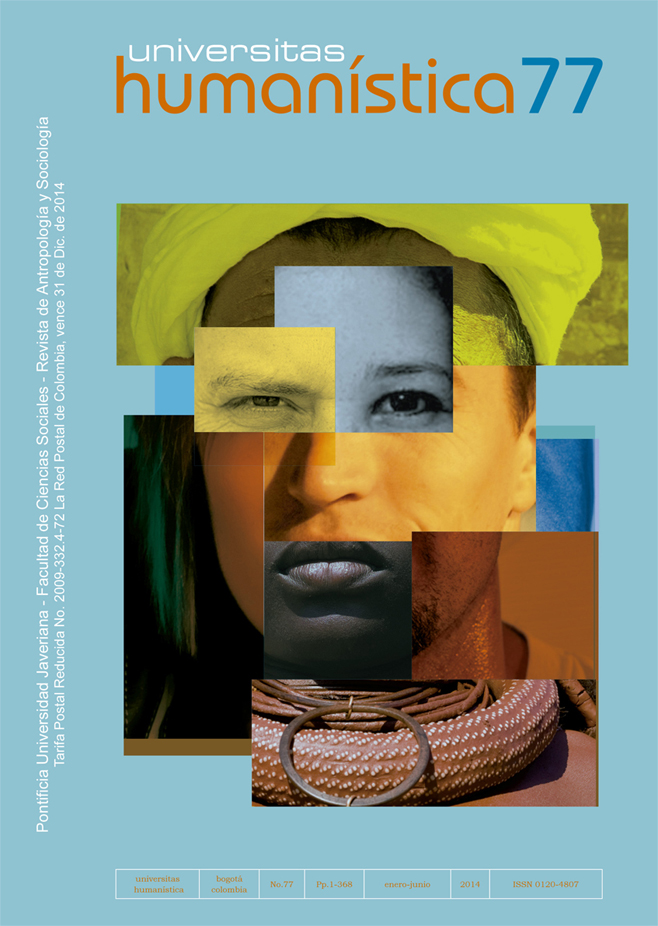Resumo
Neste artigo, detenho-me na polêmica gerada no contexto de expansão do ensino superior brasileiro, por meio da medida de cotas para estudantes negros e indígenas na Universidade, para observar o que revelam os discursos sobre as concepções de ações afirmativas. Para isso, analiso dois manifestos que foram entregues ao Congresso Nacional, no ano de 2006, por intelectuais brasileiros que se posicionaram publicamente em relação à política de cotas. A análise, orientada por uma concepção de linguagem bakhtiniana, mostra que o conceito de “ações afirmativas” se mostrou em disputa: no primeiro, é tomado como uma medida racialista e desigual; no segundo, é entendido como uma medida de desconstrução do racismo. Ao caracterizar esse debate no cenário brasileiro, busco contribuir para a construção de um panorama regional sobre a questão racial e sobre as ações afirmativas no contexto latino-americano.

A revista Universitas Humanística encontra-se registada sob a licencia Creative Commons Versão 4.0 Internacional. Portanto, esta obra pode se reproduzir, distribuir e comunicar publicamente em formato digital, sempre que dado o crédito apropriado para os autores e a Pontificia Universidad Javeriana. Permite-se citar, adaptar, remixar, transformar, autoarquivar, republicar e criar a partir do material, para qualquer fim, mesmo que comercial, sempre que indicado apropriadamente o nome do criador, provido um link para a obra original e indicado se mudanças foram feitas. A Pontificia Universidad Javeriana não retém os direitos sobre as obras publicadas e os conteúdos são responsabilidade exclusiva dos autores, os quais conservam seus direitos morais, intelectuais, de privacidade e publicidade.
O aval sobre a intervenção da obra (revisão, correção, edição, tradução, formatação) e a subsequente difusão disponibiliza-se através de licença de uso e não através de transmissão de direitos, o que representa que a revista e a Pontificia Universidad Javeriana são isentas de qualquer responsabilidade que puder se derivar de uma prática ética pobre por parte dos autores. Em consequência da proteção fornecida pela licença de uso, a revista não fica na obrigação de publicar retratações ou alterar informações já publicadas, a não ser que a errata seja decorrente do processo de gestão editorial. A publicação de conteúdos nesta revista não representa royalties para os contribuintes.


